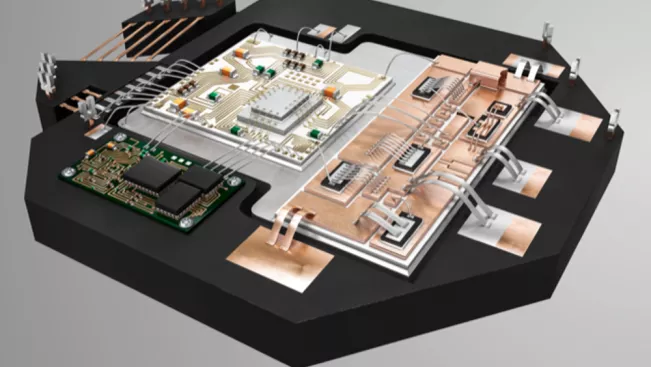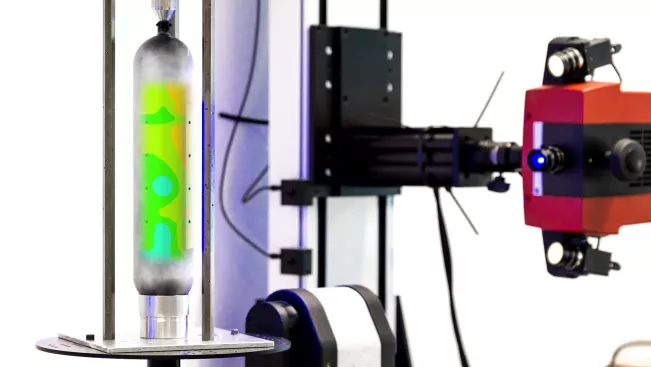Institute of Technology, Resource and Energy-efficient Engineering (TREE)
Labs for Materials and Processes
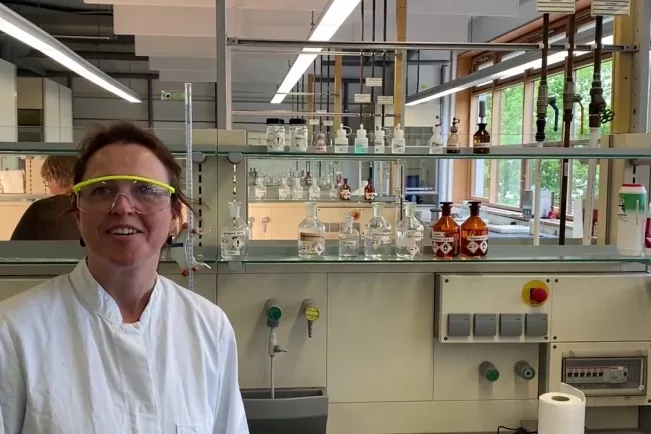
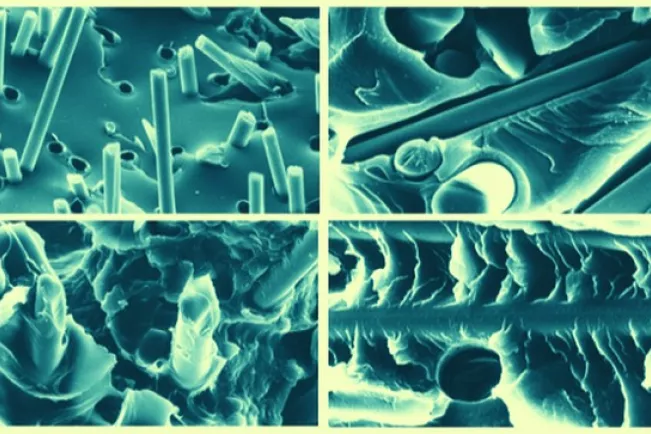
State-of-the-art Analysis Techniques and Equipment
Our research focuses on areas such as material development, damage analysis, optimization of processing processes considering energy efficiency, quality, and resource conservation. Our highly advanced equipment allows comprehensive investigations in the field of material analysis, material, and component testing, spectroscopy and diffractometry, as well as material processing. The laboratories particularly focus on the following topics:
- Biomaterials
- Biomedical Materials
- High-temperature materials
- Power electronics
- Sustainable construction materials
- Optimization of packaging materials
- Water treatment
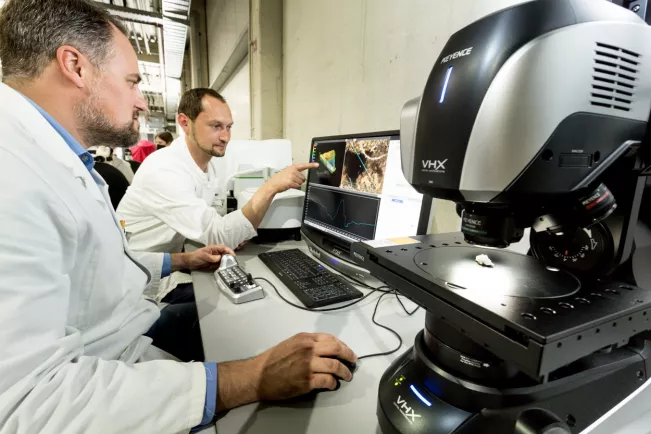
Chemical Laboratories
In the chemical field, you will find both wet-chemical basic laboratories and physicochemical and instrumentally analytical laboratories. In laboratory and technical internships, our students become familiar with the methodology of experimental work. Simultaneously, we conduct experimental research tasks and investigations on behalf of the industry. Here is a brief overview of our equipment:
- Wet-chemical basic laboratories in inorganic, organic, and analytical chemistry
- Instrumentally analytical laboratories: Chromatography (e.g., GC, HPLC, DC, GC-MS, GPC, IC), polarography, spectroscopy (e.g., AAS, RFA, UV_VIS, IR), etc.
- Pilot plant: Rectification, extraction, etc.
- Physicochemical laboratories: Setups for kinetic measurements, calorimetric measurements, etc.
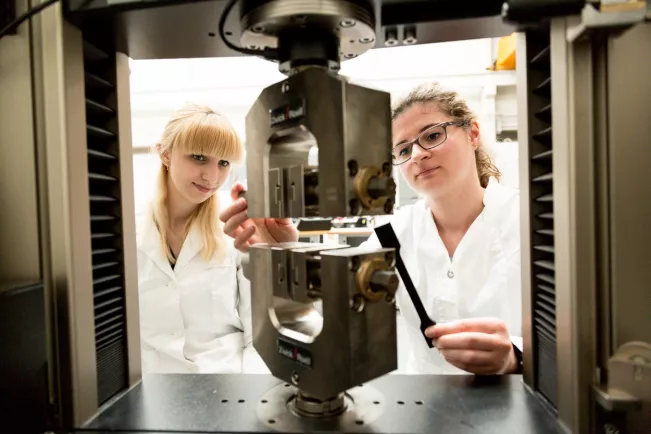
Materials Science Laboratories
The materials science laboratories are equipped with state-of-the-art facilities used for both teaching and research. Various devices and testing procedures are available at our locations in Rheinbach and Sankt Augustin. In Rheinbach, the following equipment is available: mechanical-technological testing methods (universal testing machines, notch impact testers), scanning electron microscope, spark spectrometer, comparison microscope, various incident and transmitted light microscopes, ultrasonic testing devices, methods for thermal analysis of plastics (e.g., DSC), DMA, rheometer, microtome, injection molding machine, laboratory extruder, micro and macro hardness testers, Rockwell and Shore hardness testers. In Sankt Augustin, the following equipment can be used: mechanical-technological testing methods with temperature control (universal testing machines, drop tower), scanning electron microscope with energy-dispersive X-ray spectroscopy, Brinell and Vickers hardness testers, incident light microscopes, as well as a modular range of optical metrology for 2D and 3D measurements, which is shared with the dynamics laboratory.
„Our research in the field of Sustainable Materials aims, among other things, to develop environmentally friendly alternatives to conventional plastics. Additionally, we are working on the development of innovative cleaning processes for wastewater and drinking water, for example.”
Prof. Dr. Johannes Steinhaus - Vice Dean/Professor for Materials Science, esp. Hybrid Material Systems & Damage Analysis/Head of Industrial Services at the TREE Inst./Program Director MSc Materials Science & Sustainability Methods

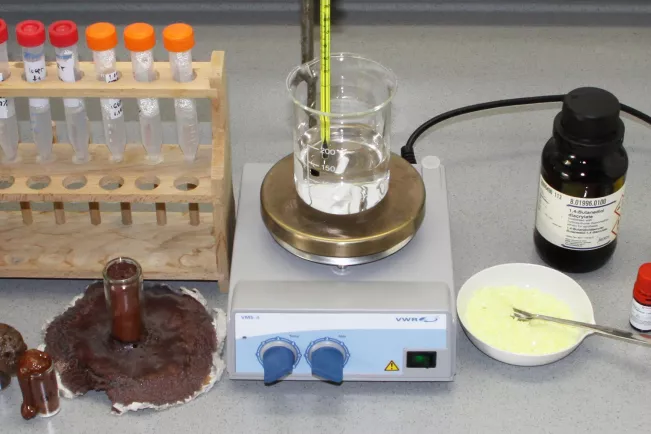
Biological Laboratories
For molecular biology work, we have PCR thermocyclers, real-time PCR analysis systems, electrophoresis equipment (including capillary electrophoresis), and UV/white light transilluminators. Biochemical processes are analyzed using fluorescence- and luminescence-based plate readers, UV/VIS spectrophotometers, high-performance liquid chromatography (HPLC), and isoelectric focusing (IEF). In the field of cell analysis, flow cytometers (FACS) and a MACS Quant® Analyzer are available.
Our histological laboratory provides paraffin and cryo microtomes as well as a wide range of microscopes, including incident light, transmitted light, fluorescence, and even a confocal microscope. Additionally, fermenters, laminar flow hoods, and electrophysiological techniques such as the patch-clamp method are available in our labs. This allows us to cover a broad spectrum of biological work for both teaching and research, as well as in collaboration with companies at our university.
Research and cooperation
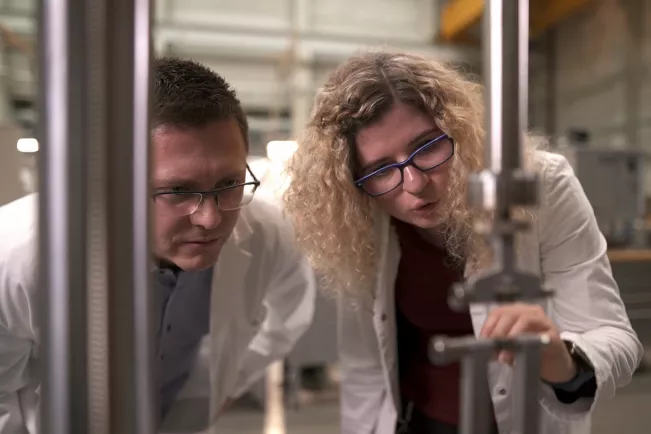
We are actively interested in transferring sustainability-oriented technology to society and industry, and thus, we regularly seek new partners to collaborate on exciting research topics. We are pleased to provide guidance on specific matters related to research cooperation, contract research, and development.
For instance, in the field of material analysis, we are ready to assist you in selecting the optimal material for your application. Additionally, we can support you in the energy-efficient and sustainable optimization of your manufacturing or assembly process. We are open to discussions about designing an application-oriented test setup and can help you with analysis and lifetime predictions. Feel free to reach out to us for further collaboration.
